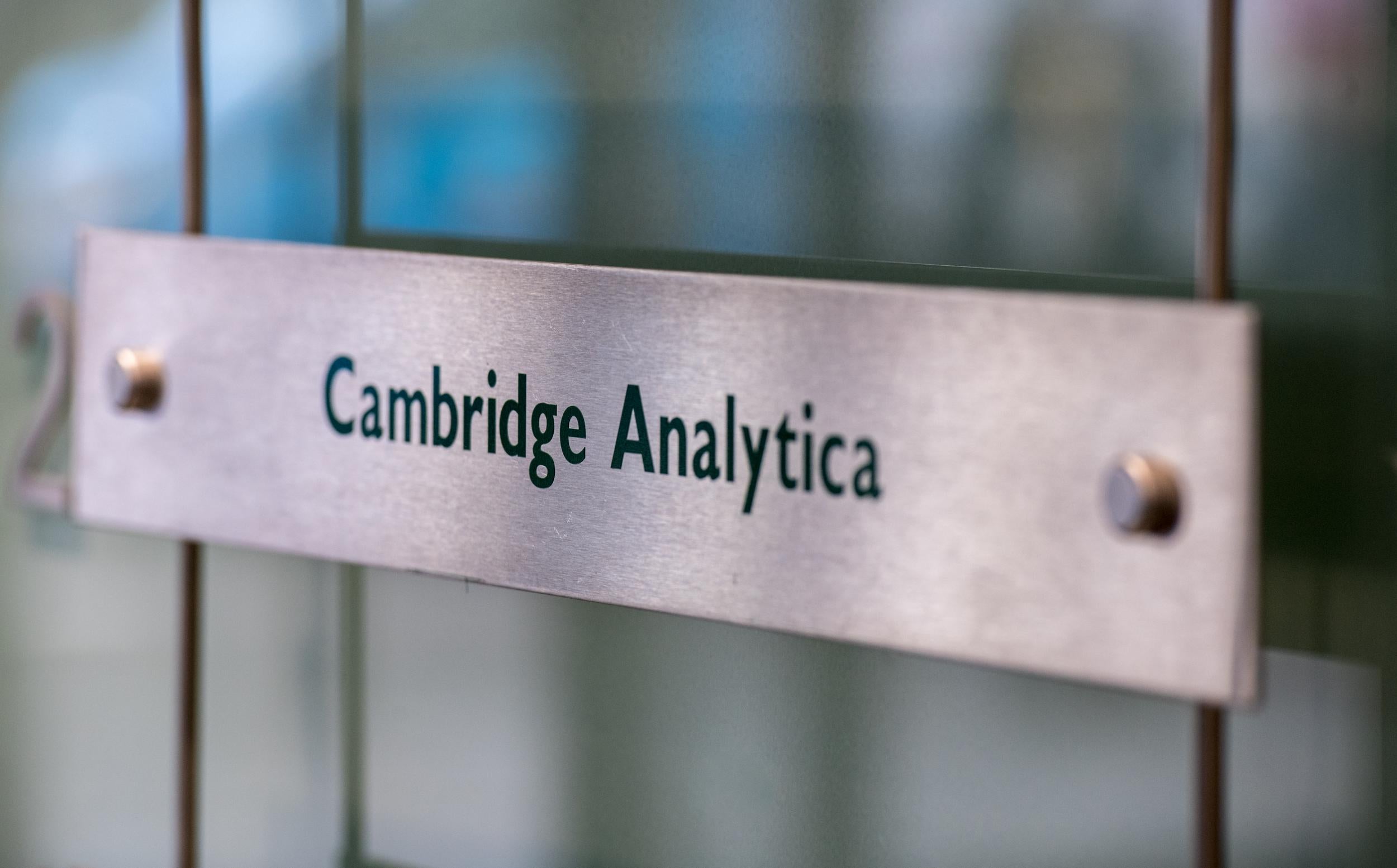Cambridge Analytica planned its own cryptocurrency to sell personal data
The cryptocurrency could have been used to store and sell personal data
Your support helps us to tell the story
From reproductive rights to climate change to Big Tech, The Independent is on the ground when the story is developing. Whether it's investigating the financials of Elon Musk's pro-Trump PAC or producing our latest documentary, 'The A Word', which shines a light on the American women fighting for reproductive rights, we know how important it is to parse out the facts from the messaging.
At such a critical moment in US history, we need reporters on the ground. Your donation allows us to keep sending journalists to speak to both sides of the story.
The Independent is trusted by Americans across the entire political spectrum. And unlike many other quality news outlets, we choose not to lock Americans out of our reporting and analysis with paywalls. We believe quality journalism should be available to everyone, paid for by those who can afford it.
Your support makes all the difference.Cambridge Analytica, the company behind the Facebook data scandal, planned to develop its own cryptocurrency for the purpose of storing and selling personal data.
The UK data firm hoped to raise $30 million through the venture, according to various reports, while also offering new ways of exploiting people’s data.
The money would have been raised through a fundraising method known as an initial coin offering (ICO), which has become a popular alternative to early stage venture capital funding over the last year.

A Cambridge Analytica spokesperson said the company had considered the use of blockchain — the underlying technology behind bitcoin — in order to store online data.
“Prior to the Facebook controversy, we were developing a suite of technologies to help individuals reclaim their personal data from corporate entities and to have full transparency and control over how their personal data are used,” the spokesperson said.
“We were exploring multiple options for people to manage and monetise their personal data, including blockchain technology.”
The spokesperson did not comment on whether Cambridge Analytica planned its own specific cryptocurrency, or whether it is still working on one.
The latest revelations come as former Cambridge Analytica employee Brittany Kaiser revealed that the previously stated figure of 87 million people affected by the Facebook data scandal may be even higher.
Facebook has previously confirmed that the personal information of up to 87 million of its users was compromised after 270,000 users of the social network took an online personality quiz designed to harvest data.
Ms Kaiser told a UK Parliament committee on Tuesday that other online quizzes and questionnaires were also used to gather people’s personal information.
“I believe it is almost certain that the number of Facebook users whose data was compromised through routes similar to that used by Kogan is much greater than 87 million, and that both Cambridge Analytica and other unconnected companies and campaigns were involved in these activities,” Ms Kaiser said.

Join our commenting forum
Join thought-provoking conversations, follow other Independent readers and see their replies
Comments